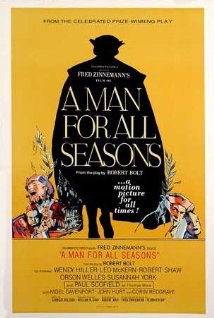Chain-links: silence
[ by Charles Cameron — sometimes a DoubleQuote — or even a triple or quad — is not enough ]
.
So here is the first in a new occasional series I’ll call Chain-links. I haven’t figured out a format for presenting these things yet, but something of that kind will probably emerge along the way. In the meanwhile, my first entry in the series is about silence.
You are invited to consider the series of quotes here as the flow of a single idea down a sequence of steps, fluid, shifting in emphasis..
**
A Roman courtroom appearance:
And Jesus stood before the governor: and the governor asked him, saying, Art thou the King of the Jews? And Jesus said unto him, Thou sayest. And when he was accused of the chief priests and elders, he answered nothing. Then said Pilate unto him, Hearest thou not how many things they witness against thee? And he answered him to never a word; insomuch that the governor marvelled greatly.
Matthew 27. 11-14
A British courtroom, many centuries later:
Not so. Not so, Master Secretary. The maxim is “Qui tacet consentire”: the maxim of the law is “Silence gives consent”. If therefore you wish to construe what my silence betokened, you must construe that I consented, not that I denied.
Thomas More, in A Man for All Seasons
Contemporary diplomatic protocol:
A proposal with strong support is deemed to have been agreed unless any member raises an objection to it before a precise deadline: silence signifies assent – or, at least, acquiescence.
GR Berridge, Diplomacy: Theory and Practice
Before a Congressional committee, under interrogation or in court:
On counsel’s advice, I invoke my right under the Fifth Amendment not to answer, on the grounds I may incriminate myself.
“Taking the Fifth”
When journos ask truth of power:
No comment.
Press secretaries and their bureaucrats everywhere.
And for good measure:
**
How does Thomas More before Cromwell — or Christ before Pilate — compare with the American who takes the Fifth, the harried executive who won’t comment?
What kind of speech is silence?
**
Water flowing down the steps in the Fort Worth Water Gardens:






October 28th, 2015 at 6:45 pm
Somewhere in your chain there might be space for “Never believe anything until it’s been officially denied.” (Yes, Minister)
October 29th, 2015 at 12:06 am
Nice one, Dave.
.